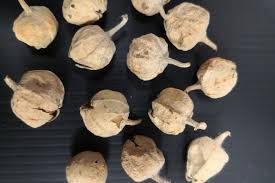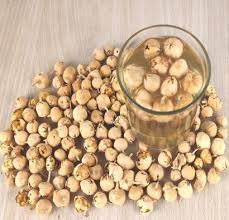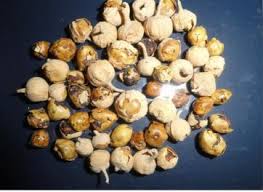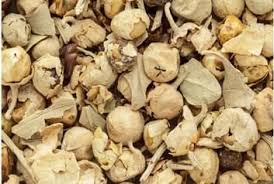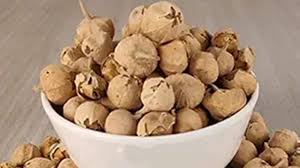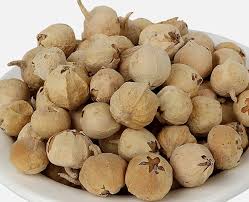Ayurveda offers holistic and natural solutions to support women’s health, with a particular focus on hormonal balance. At Dirghaanshi, we explore the best Ayurvedic practices and remedies that help women achieve balanced hormones, improve overall well-being, and embrace their natural cycles. Ayurveda’s time-tested approach to women’s health includes nourishing herbs, diet, and lifestyle practices tailored to each woman’s unique needs.
1. Understanding Hormonal Balance in Women’s Health
Hormonal balance is a key component of overall health, influencing everything from mood to metabolism, reproductive health, and energy levels. For women, hormonal fluctuations are a natural part of life, but when imbalances occur, they can lead to various health issues like PMS, irregular periods, menopause symptoms, and more.
How Ayurveda Addresses Hormonal Imbalances:
- Ayurveda focuses on the mind-body connection and promotes a lifestyle that nurtures both physical and emotional health.
- In Ayurveda, women are classified into different doshas (Vata, Pitta, and Kapha), and treatments are personalized according to one’s dominant dosha.
- Hormonal health is considered part of Ojas, the vital energy that supports the body’s immunity and overall vitality. Ayurveda aims to boost Ojas to support hormonal balance.
2. Ayurvedic Herbs for Hormonal Balance
Ayurveda offers several potent herbs that have been used for centuries to support women's hormonal health. These herbs can help regulate cycles, reduce symptoms of PMS and menopause, and support fertility and overall reproductive health.
Top Ayurvedic Herbs for Women’s Hormonal Balance:
- Ashwagandha: Known for its adaptogenic properties, Ashwagandha helps the body cope with stress, which can have a significant impact on hormonal health. It supports the adrenal glands and helps balance cortisol levels.
- Shatavari: Often called the "queen of herbs" for women’s health, Shatavari is known for balancing hormones, supporting reproductive health, and enhancing fertility. It is particularly useful for supporting the female reproductive system during pregnancy and menopause.
- Turmeric: This powerful anti-inflammatory herb helps regulate the menstrual cycle and promotes healthy estrogen levels. It also reduces symptoms like bloating and mood swings associated with hormonal imbalance.
- Brahmi: Known for its calming and stress-reducing properties, Brahmi enhances cognitive function and helps balance hormones related to mental health, such as anxiety and depression during hormonal changes.
How to Incorporate These Herbs:
- Ashwagandha can be taken as a powder in milk or water to reduce stress and promote hormonal balance.
- Shatavari is available in capsules or powder and can be added to smoothies or teas to support reproductive health.
- Turmeric can be used in cooking or as part of an Ayurvedic milk preparation called “Golden Milk” for hormone regulation and anti-inflammatory effects.
3. Ayurvedic Diet for Hormonal Health
In Ayurveda, diet plays a crucial role in balancing hormones. Foods that are rich in nutrients and have cooling or heating properties based on an individual’s dosha can help bring balance to the body and mind.
Foods for Hormonal Balance:
- Healthy Fats: Ghee, coconut oil, and nuts like almonds and walnuts are recommended for hormone production, particularly during menopause.
- Leafy Greens and Vegetables: Spinach, kale, and broccoli are rich in folate, which supports the body’s ability to balance estrogen.
- Whole Grains: Brown rice, quinoa, and oats are known to stabilize blood sugar and support healthy progesterone levels.
- Fruits: Berries, pomegranate, and papaya help balance hormones by providing essential vitamins and antioxidants.
- Seeds and Nuts: Pumpkin seeds, flaxseeds, and chia seeds are rich in omega-3 fatty acids and support estrogen metabolism.
Dosha-Specific Dietary Tips:
- Vata Dosha: Women with Vata imbalance should eat warm, grounding foods like root vegetables, cooked grains, and healthy fats to keep their hormones in balance.
- Pitta Dosha: Cooling foods like cucumbers, dairy, and leafy greens help balance Pitta-related hormonal issues, such as excessive heat or inflammation.
- Kapha Dosha: For those with a Kapha imbalance, lighter foods like bitter greens, legumes, and spices like ginger and turmeric can help regulate hormonal levels.
4. Ayurvedic Practices for Managing Hormonal Imbalances
In addition to herbs and diet, Ayurveda emphasizes a healthy lifestyle to help women manage their hormones naturally. Stress reduction, self-care rituals, and regular exercise are integral to maintaining hormonal harmony.
Key Ayurvedic Practices:
- Abhyanga (Self-Massage): Massaging the body with warm herbal oils helps to improve circulation, detoxify the body, and balance the doshas. It is particularly helpful in reducing stress and improving hormonal health.
- Yoga and Pranayama: Certain yoga poses like Supta Baddha Konasana and Setu Bandhasana can help stimulate the reproductive organs and improve hormonal circulation. Pranayama (breathing exercises) such as Nadi Shodhana (alternate nostril breathing) help reduce stress and regulate cortisol levels.
- Sleep and Rest: Ayurveda places a strong emphasis on getting sufficient rest to support hormone production. Consistent sleep patterns help balance melatonin and cortisol levels, supporting overall hormonal health.
5. Ayurvedic Detox for Hormonal Health
Detoxification, known as Panchakarma in Ayurveda, is an essential practice for maintaining balance in the body. Detoxing helps eliminate toxins (Ama) from the body, which can interfere with hormone function.
Detox Practices for Hormonal Balance:
- Panchakarma: This five-fold therapy involves cleansing the body through massages, herbal treatments, and detoxification procedures like Virechana (purgation) and Vasti (enema).
- Herbal Detox Teas: Teas made with ingredients like turmeric, ginger, and coriander are excellent for detoxing the liver, which plays a crucial role in hormone regulation.
- Oil Pulling: A daily practice of swishing oil in the mouth can help remove toxins and promote healthy hormonal levels.
6. The Ayurvedic Approach to Menopause and Perimenopause
Ayurveda provides gentle and effective solutions for managing the hormonal fluctuations during perimenopause and menopause. These stages often come with symptoms like hot flashes, mood swings, and irregular cycles.
Ayurvedic Remedies for Menopause:
- Shatavari and Ashwagandha are particularly helpful for alleviating symptoms of menopause by reducing stress, improving energy levels, and promoting hormonal balance.
- Herbal formulations designed for menopause are available in Ayurvedic pharmacies and can support both physical and emotional well-being during this phase.
Conclusion:
Ayurveda offers a holistic and natural approach to supporting women’s health, especially when it comes to hormonal balance. By integrating Ayurvedic herbs, diet, lifestyle practices, and detoxification methods, women can experience improved health, vitality, and emotional well-being throughout all stages of life. At Dirghaanshi, we are committed to providing you with the knowledge and tools to embrace Ayurveda for optimal hormonal health.








